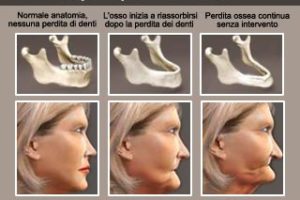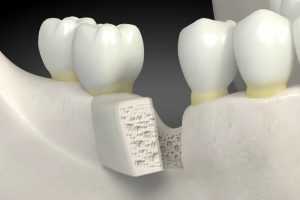
Dental implants are a very popular topic among adults nowadays. We have to admit that this makes us happy. In this article, we will answer the most common and frequently asked questions we receive from our patients who intend to start a treatment with dental implants. Although you will find the answer to your question below, we will still be happy to have a real conversation with you via our site chat or by phone. Log in here to contact us directly.
How long does an implant surgery last?
An intervention with dental implants can last from a few minutes up to several hours. If the blood tests or other necessary investigations are normal, and if the quality and quantity of the bone is sufficient, then the dental implant is inserted. The implant procedure lasts on average 20 minutes for each dental implant. If the clinical case is more complicated than normal (little bone or other special bony anatomy), then the operation can take approx. an hour.
Is dental implantology painful?
No! The surgery is not painful as it is performed with local anesthesia. The extraction of a wisdom tooth is usually more complicated and more inconvenience compared to the insertion of an implant. Now, in our dental clinic in Moldova, we offer patients with fear and panic attacks the opportunity to dream peacefully (general anesthesia), while their implants are inserted.
How are implants inserted?
There are 3 techniques for inserting a dental implant:
- surgical or classic technique, when the gum is cut and then the implant is inserted;
- trans mucosa technique or flapless (digital) surgery, when inserting the implant without incising the gum through the surgical guide which offers more precision, accuracy and safety;
- immediate post-extraction implantology when the implant is inserted in the same session in which the tooth is removed. Read more on Techniques for inserting dental implants.
Can i place implants if i don’t have enough bone?
Definitely YES! Even if it does not have sufficient bone, there is still the possibility of inserting dental implants, using various methods, depending on the clinical case. These methods are:
- bone grafting through sinus lift, crestal expansion or other bone tissue regeneration procedures. Read more about: Bone grafting. Bone surgery prior to implantation;
- the all on 4 technique, when the implants are placed in the frontal area where usually the bone is kept longer;
- pterygoid implants, which are placed in the area of the wisdom tooth;
- zygomatic implants, which are inserted into the cheekbones (the zygomatic bone, also called malar bone). They are frequently used in case of severe bone atrophy over the entire dental arch.
When i will have permanent teeth?
In most cases, the final teeth are put on after a period of 4-6 months (implant integration time). If it is about the upper jaw, then it is necessary to wait 6 months. If it is the lower jaw, 4 months are enough for the implants to integrate into the bone.
If, on the other hand, you have little bone, and you need to do some bone graft surgery that requires a supplementary session, then you will have to wait about a year to get the final teeth.
How often do I have to go to Moldova to have dental implants?
The number of phases of a treatment with dental implants depends primarily on the situation of the bone. With new digital techniques and other methods of avoiding large bone grafts (which previously required supplementary visits), treatment can now be completed in 2 visits in most cases. To tell you for sure, it is advisable to send a 3D tomography, on the basis of which our dentist will immediately answer this question.
I have no teeth, how many implants do I need for the whole arch?
The number of implants that will replace the teeth of a full arch is influenced by various factors, such as:
- the patient’s budget (for a fixed job you can put from 4 to 8 implants on a dental arch, while for a semi-fixed job, 2 implants are also sufficient, which makes it a cheaper treatment);
- the patient’s need for the number of permanent teeth. To support a 14-tooth arch, it is advisable to insert – 8 implants. Only 4 plants, do not resist the force of masticatory 14 teeth.
- the quantity and quality of the available bone in which the dental implants will be placed.
There are any age restrictions on the implantation of teeth?
Implant specialists do not see an age limit for implant placement if the patient’s health and physical condition allow it. However, the minimum age limit is 18 when the jaw bone is well formed to receive dental implants.
What is the success rate of dental implants?
If the quantity and quality of the bone are favorable for inserting implants, according to the most accredited scientific studies, titanium dental implants would have a success rate of 95-98%, which shows that implantology is one of the procedures with the highest success rate in medicine.
What are the risks associated with dental implants?
Among the complications that can occur during the insertion of dental implants, we can enumerate: the insertion of an implant of an inadequate size by touching the mandibular nerve, or reaching the maxillary sinus; after surgery, an infection can form and further lead to an inflammatory process and loss of the implant.
Can i be allergic to implants?
For almost 50 years of use, allergies to titanium implants have never been reported. In fact, titanium has no allergenic elements and behaves in an absolutely neutral way in the body.
What happens if an implant is rejected by the body?
If a dental implant does not integrate, it detaches by itself or must be removed. A new implant can be inserted in the same position, or by moving a few millimeters, in the same session as the extraction of the non-integrated implant, or, after 3-4 months when the bone is well regenerated.
Are the implants guaranteed?
As we have already mentioned the success rate of the implants is very high, approaching 100%. However, no one can be sure that all implants will integrate perfectly into the bone. It is useful to know that most of the large implant manufacturers offer a lifetime guarantee – for their implants, this means that in case of rejection you will receive a new implant which can be reinserted. At the same time, many clinics offer free reinsertion of the rejected implant within 1-3-5 years. So we can say that the implants are guaranteed up to a certain point.
How long does a dental implant last?
Today, the oldest cases are over 50 years old. This obviously assumes that all steps of the treatment have been carried out under strict conditions, and all the recommendations of the surgeon and the conditions set out in the guarantee certificate have been 100% respected.
How much cost an implant?
The cost of dental implants depend on different factors, like:
- the number of implants you want;
- the difficulty of the operation (if it is necessary to correct a bone or gingival defect);
- the need to increase bone volume, before implant insertion.
Request an appointment to know the cost of your intervention.
Can I pay in instollments?
The payment in installments is unfortunately not accepted. It is important to note that the treatment with dental implants is performed in two sessions and that each time you pay for the treatment performed. That is to say that in the first visit you pay for the implant and in the second visit you pay for the crown.
What brands of implants do we use and why?
In our clinic, we use Italian, Korean, Swedish and Israeli implants.
Megagen, Osstem, Nobel Biocare, Alpha Bio, JD Evolution are famous all over the world like the most qualitative implants, premium and economical with an excellent quality / price ratio, so every patient with any budget can afford to have fixed teeth on dental implants.
Read more in the article: Best dental implants are the ones that don’t fall out
What shape and size are dental implants?
The implants have a cylindrical or conical screw shape, of variable length and diameter, to adapt to the amount of available bone. Dental implants usually have a length of 6-15mm. and a diameter of 3-5 mm. The shorter implants have a length of 6 mm. and a diameter of 2 mm (they are called mini implants).
Zygomatic implants are approximately 3 times longer in length than conventional implants.
Do metal detectors give alarm for my system during the security check at the airport?
No, absolutely no 🙂 Don’t worry about that! The dental implants are not magnetic and are too small to trigger the metal detector.

















Fehlerbericht
Der folgende Text wird anonym an den Autor des Artikels gesendet: